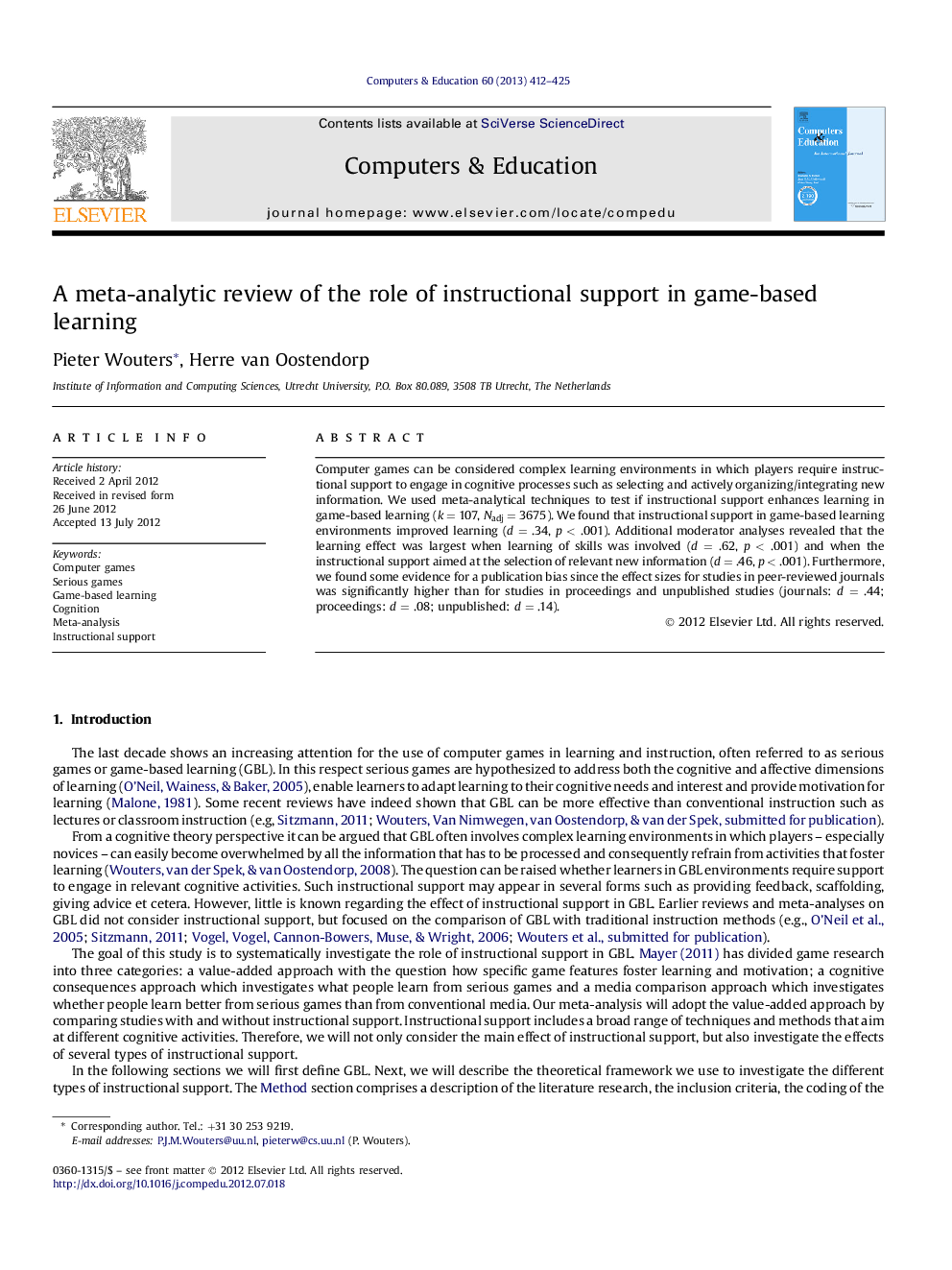| Article ID | Journal | Published Year | Pages | File Type |
|---|---|---|---|---|
| 348579 | Computers & Education | 2013 | 14 Pages |
Computer games can be considered complex learning environments in which players require instructional support to engage in cognitive processes such as selecting and actively organizing/integrating new information. We used meta-analytical techniques to test if instructional support enhances learning in game-based learning (k = 107, Nadj = 3675). We found that instructional support in game-based learning environments improved learning (d = .34, p < .001). Additional moderator analyses revealed that the learning effect was largest when learning of skills was involved (d = .62, p < .001) and when the instructional support aimed at the selection of relevant new information (d = .46, p < .001). Furthermore, we found some evidence for a publication bias since the effect sizes for studies in peer-reviewed journals was significantly higher than for studies in proceedings and unpublished studies (journals: d = .44; proceedings: d = .08; unpublished: d = .14).
► Instructional support in GBL facilitates the acquisition of skills and knowledge. ► Instructional support in GBL facilitates the selection of relevant information by the player. ► Embed instructional support for organizing/integrating new information in the game play. ► In-game performance benefits less from instructional support than learning skills and knowledge. ► GBL designers should focus on the learning content and less on visual design.
